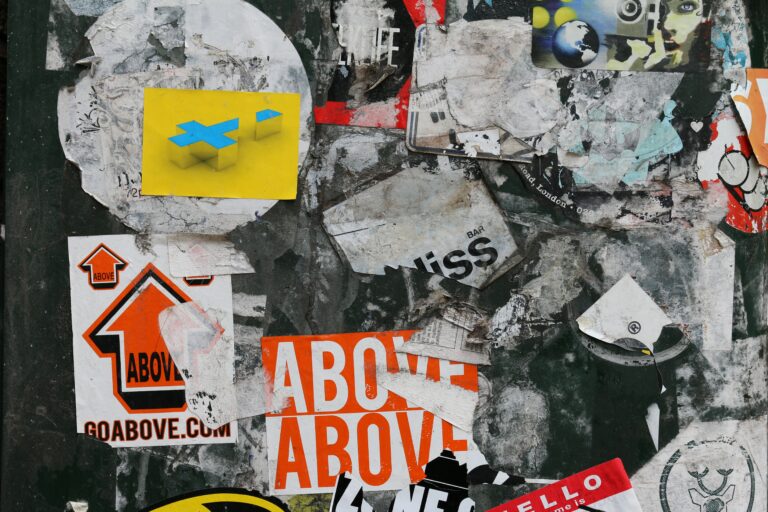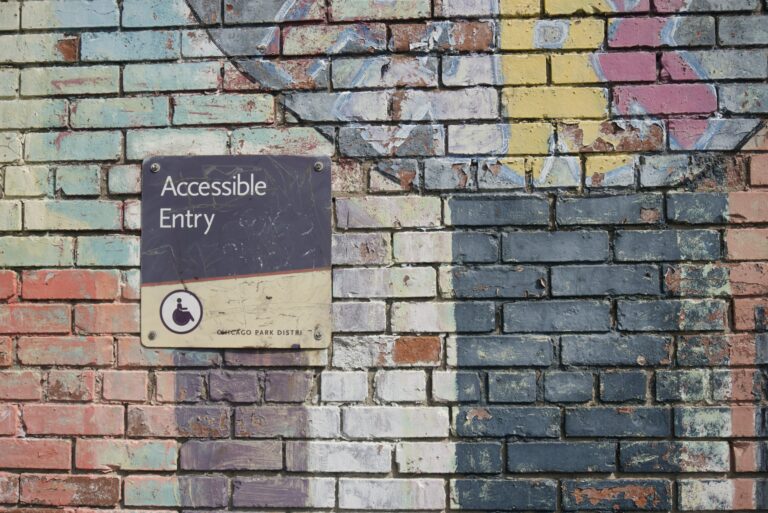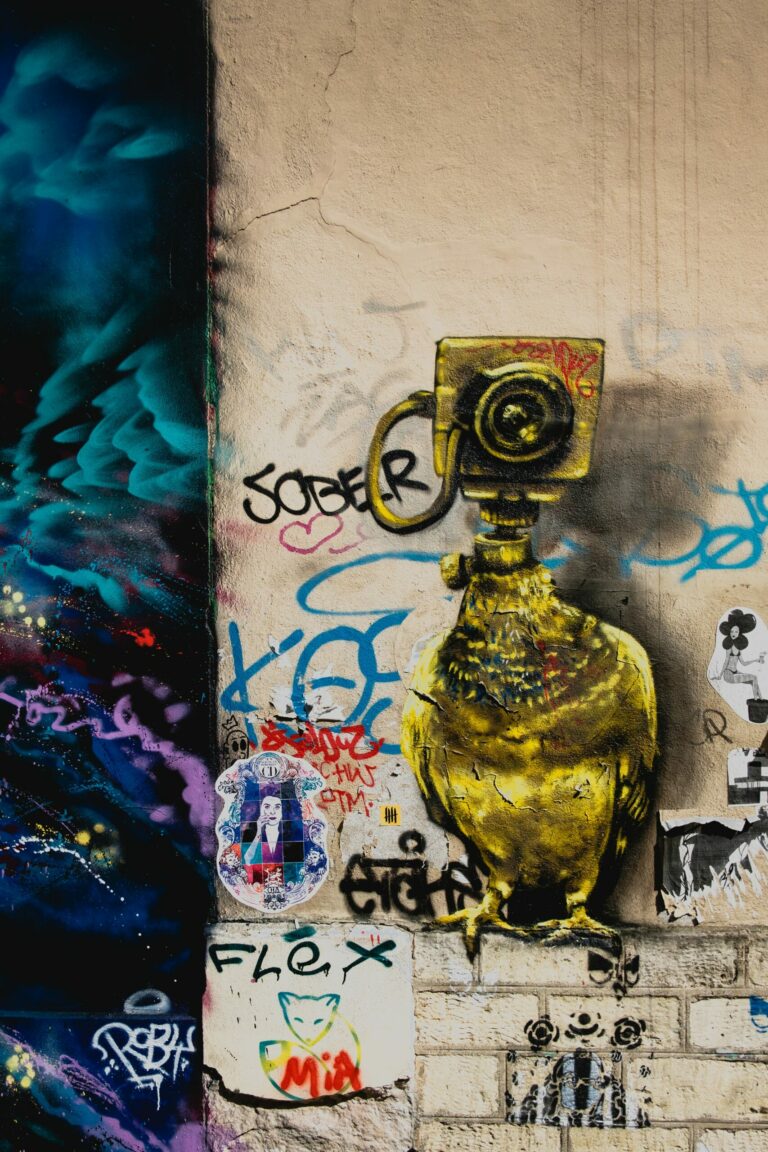Digital Detox #7: Radical Openness
Sunshine is the best disinfectant.
Sure, it’s an aphorism, but it’s a good’un.
I mean, it’s not always true. Don’t clean your kitchen with sunlight; soap is, in fact, also an excellent disinfectant. Probably better if you’ve just handled raw chicken.
But when we talk about sunshine as a disinfectant, we’re talking about a belief that when we do things in the open, in a way that renders us publicly accountable for our actions and our processes, we are more likely to make more ethical choices. It’s why as a society we strive for transparency in our governance structures, and why we ask questions when the transparency starts to occlude. We believe that when things are happening in plain view, they can be trusted.
This is what I dig about open education as a movement. In today’s post, I’m going to advocate for a philosophy of openness in our engagement with the digital world and in our expectations of the digital tools we draw upon. I want to talk about what the ethos of open looks like when it comes to combatting the predatory practices we talked about in the first few detox posts, and I want to talk specifically about what open looks like when it’s radical. I’m thinking specifically about the choices we make as teachers and learners, and the choices we can make that take that teaching and learning out into the open in ways that upset the hierarchies these systems rely upon. But I think that openness — demanding it and enacting it — is a cure for much of what ails these systems. They thrive on sneaky, duplicitous access to data and information. What if we fastidiously protect what matters, and share the rest, freely?
But maybe we should talk about what I mean when I say open, and, by extension, what I mean when I saw something is radically open.
It’s More Than Textbooks
The OER (open education resource) movement has been phenomenally successful, and though textbook sales are still big business, we see things like homework systems as a direct response to academia’s pivot in many disciplines towards open. Textbook manufacturers see the writing on the wall, and they’re redefining the business because they know their market share is dropping as open resource producers get better and better at the work they do.
But as a result of this success, open textbooks kind of suck the air out of the room in a lot of conversations about openness, and I’ve certainly sat through many a meeting where that’s the only form of open up for discussion. I think that’s a real shame, because there is a lot of good to be done in the embrace of other kinds of openness. For example, we know that when students get to engage in open learning processes that take assessment out of the rarified world of the classroom and make their learning public, they learn differently (and, perhaps, better). Why would the same not be true of our teaching?
I have been a teacher for my entire adult life, and I want acknowledge the strange liminal space teaching occupies. For something you might do in a room of 350 people, it’s weirdly intimate and, for many reasons, highly vulnerable. It’s also the part of the gig we control: even in cases where courses are highly regimented and textbooks are assigned by external structures, what happens in the classroom belongs to us. Teaching is profoundly personal, and the choices we make in the classroom are among the clearest articulation of our values. When we are early-career, the perceptions of our students and colleagues matter a great deal to our opportunities to be re-hired or to progress, and many of us have mixed feelings about institutionally-mandated peer review processes that take an hour of our class time as a snapshot of an entire career. Combine that with the problems with student evaluations in their current form, and many of us feel deeply anxious about how our classroom work is viewed. The temptation is there to close our doors and keep to ourselves.
The counter to this, I argue, is more openness in our approach, and a shared sense that learning is something that happens in community. When we embrace the concept of open beyond the (very important) world of the course text, we’re talking about an open pedagogy, where teaching and learning is shared freely and widely by default. (Christina Hendricks has collected a lot of my favourite people’s thinking on this topic.) When I think about reframing our sense of what teaching looks like to be radically open, I think about syllabi and course materials made freely available, licensed CC-BY-NC and built with the intention of being built upon, and the opportunities that presents to all of us to learn with each other. I think about open classroom doors and teaching that crosses departmental and faculty divides. I think about students producing authentic learning in the open where they can engage with each other freely, and where they seem assignments as meaningful contributions to their discipline rather than hoops they jump through (David Wiley calls traditional assignments “disposable,” and the first time I heard it snapped my brain in two with its appropriateness). I think about working outside of the LMS, and making the resources of a public university freely accessible to the public. I think about shared annotations. I think about allowing students more agency and decision-making power around assignment design and classroom practice. All of these things are differently limited by our institutions, circumstances, and privileges within the academy, but the will to keep pushing our work as teachers into the open is, I think, radical, because it pushes back against the desire to hoard data, exclude learners, and let algorithmic processes do the heavy lifting.
This week, a conversation erupted on Twitter about copyrighting one’s syllabus, and it really got me thinking about the reach of open pedagogy and the conversations yet-to-be-had. I am in some ways sympathetic to the case of the precarious worker at an institution with unclear policies around academic freedom and content ownership wanting to protect themself. I’m also, though, struggling with what it would mean for the shared knowledge-making of the classroom to be copyrightable by a single person. I have, in my time, spent shocking numbers of hours labouring over my syllabi — including the one semester I decided my syllabus should be a zine — but by the end of the semester it is always the least interesting component of the course. And by the end of the term, I never feel like the singular owner of the ideas.
In the end, I think that’s what appeals to me about open pedagogy, and why I see it as a way forward through all the muck of this Digital Detox month. In an open pedagogy, there is no space for surveillance software and plagiarism checkers, for expensive homework systems and inaccessible content. When all that is gone, we get to focus on the learning.
And It’s More Than Free
We spend a lot of time, in selling people on the benefits of open, on the drive to save students money on their textbook costs. Lord knows, that’s important — driving down the added costs of education is one of the issues I care about most, because individuals can budget for fixed costs like tuition and rent only to have added costs like textbooks and homework systems break the budget. These things are under the direct control of faculty in most situations, and greater faculty awareness of and commitment to saving costs for student by making choices like adopting OERs where possible is important.
We know that students experience the same learning — sometimes better learning! — from their OER as with traditional textbooks, and they even perceive the learning be improved (likely because they have access to the text, which is increasingly not the case in courses where classroom materials are very expensive). This is important data to have. There are assumptions, sometimes, made around free resources, as though their accessibility makes them inherently inferior. Last year, when I still had Facebook, I tried to get rid of some old baby stuff using Marketplace. I listed it all for free. After fielding dozens of no-shows I realized that, in the popular consciousness, free signals valueless, and even a nominal dollar value might encourage buyers to take my listings more seriously (I couldn’t be bothered, and donated the whole whack to a local shelter). So it matters that students are willing to use OERs and that they trust them as much as they trust for-profit textbooks.
But open resources can also do things that more closed learning ecosystems cannot. Teaching students how to engage with the possibilities of the open web allows them to see real-world implications for their learning, and it pushes them to explore an audience beyond the course instructor. It allows them to conceive of their leaning in contexts that will extend more authentically into their working lives. And as someone who has had a small hand in creating some pretty cool OER, it’s worth noting that some of these experiences have had the most exciting reimaginings of traditional processes like peer review.
It’s good to have somewhere to channel all my burn-it-down energy.
Is All Open Created Equal?
No.
I mean, open is open is open. But the good will of the movement and its participants can be coopted.
Rajiv Jhangiani has a great term — faux-pen — to describe what happens when open education resources, or the ethos behind them, gets co-opted by for-profit ventures; I also like openwashing. Part of the trouble with open being extremely on-trend at the moment is that even the most proprietary of publishers want to pretend to be in on it, too. Amazon could call its OER gateway “Inspire” all it likes, but it was still an Amazon brand, and it was still generating profit, and I was never going to trust the biggest data hoarders in tech with anything my community built (spoiler alert: it was full of copyrighted materials being passed off as open and its dead now).
Indeed, regulatory bodies seem to be less interested than they should be in protecting users from openwashing claims. The recent UNESCO definition of an OER, for example, removed the requirement that to be open a resource should allow the “right to create, own, and control copies” of the resource is simply allowing “access,” which strips back the rip-mix-burn ethos (irony of my use of an Apple slogan notwithstanding) of open in favour of something far smaller and more restrictive.
So how can you know? Generally, if something is truly open, it will sport a Creative Commons license or similar, which is how you know it’s yours to mess with at will. And the Good Actors List provides other signs to confirm that something is really open if it says it is.
Openness Is Not a Curative
Don’t think I’m naive. My philosophical commitment to an open pedagogy is real, but my eyes are open. While I would love to see our institutions taking big, bold steps in the direction of open, I’m also mindful of the kinds of resources it takes to do this work well. Creating OERs of any kind, to be of high quality, require resources of time and all kinds of expertise beyond the subject matter, from copyediting and revising to authoring for the web. And resources need to be invested in upkeep and maintenance. These things are labour, and labour should be compensated.
There are huge systemic issues here. I firmly believe that all the work created in a public institution, funded by public dollars, should be licensed openly, from the most generic introductory syllabus to the most cutting-edge research. But not all people creating content within the university are being equally compensated for their labour, and I think precarious employees of the institution have every reason to want to protect their intellectual property to help ensure their livelihoods. Indeed, this is yet another example in this series where precarity is at odds with ethics; when the institution behaves like a private business with a profit motive and not as a public good, those on the margins are often forced to do the same to protect themselves.
And I’m also not arguing that open teaching and learning is by definition good teaching and learning. I’m sure there are examples where people have opened their doors to reveal… nothing much of any quality. We’re all human, after all. But it seems to me that erring on the side of openness in a world of proprietary learning technologies and big data and algorithmic thinking at least begins the journey from the point of ethical consideration.
In our last regular post of the Detox on Thursday, we’re going to wrap up this whole discussion by ending with what matters most: now that we know all this, how do we move forward with an ethics of care? In the meantime, here are today’s prompts:
- What are your experiences with learning and/or teaching in the open?
- What have been your experiences with using any kind of open educational resource?
- What do you think is missing from the discourse around open?







One of things that I have had experience with in regards to this topic is working with the OERu (Open Educational Resources universitas) – https://oeru.org/
This is an initiative that builds openness into every aspect of its operations. Governance is open, all courses are CC, all course material is OER, the entire IT infrastructure is FOSS and students don’t even have to register to be able to take a course. It aims to be as open and transparent as possible while still being credible.
One observation that I have had, however, is that work in the “open” tends to lean heavily on individuals that are committed to the cause of “open”. As an example, open source IT infrastructure can be very difficult to establish and maintain and many skilled individuals are lured away to high paying jobs at various for-profit companies in this area. I don’t necessarily fault anyone for doing this, as proper compensation is very important, but rather wanted to highlight something that I have seen.
I agree with you on the creation of OERs as well. There should be adequate funding and compensation to both create and maintain these resources if we want to use them. My observation has been that many of these projects have been funded by one-time grants when they really need ongoing commitments to be sustainable long-term. I’d love to hear examples from others of where they have seen more ongoing commitments of money and resources to this area.
You present a vision of openness that I find both refreshingly novel yet complementary to my favourite thinkers and practitioners.
I’m reminded of something Phil Barker wrote as a comment to your first post. (https://dev2021dev2024digitaldetox.trubox.ca/2020/01/05/digital-detox-1-edtech-and-equity-issues/#comment-10)
“Proper co-creation” — I think inattention to facilitating that is where a lot of missed opportunities for the “open movement” originated. (Those are legit scare quotes, I personally don’t think open is a movement.)
To me, the initial promise of digital-era open education (as distinct from the historic visions of open that people like Tannis Morgan have written about (https://homonym.ca/innovation/innovation-in-higher-education-and-other-blasts-from-the-past/) was the potential for wider participation and co-creation in all aspects of educational practice. It implied a dismantling or end-around of some of the old barriers to entry, and wild new models of knowledge creation. And it promised something like a new logic of educational economy, built on sharing and networked collaboration, a logic that did not neatly align with classic capitalism. For me, that was a big part of the appeal.
That spirit lives on in open pedagogy, and like you I find hope and inspiration in these practices. But I would argue that these elements have never been the ones funded by “the benevolent dictatorship of a rich philanthropic institution”, or gotten much attention or material support from leaders of the “open movement” (stop me before I scare quote again). Maybe because truly open practices defy easy justification and coordination, they are too messy and anarchic.
So we get open textbook initiatives, which can never be resourced the way proprietary publishers can do them. I had a publisher tell me they spent more than five million dollars this year revising one single biology textbook, adding animations, ready-to-deploy activities, exams and other goodies designed to “pop”. And so we get influential and accomplished leaders of open education now telling us that “the future of learning resources” by necessity will have to be led by for-profit actors. After years of institutional resistance to open boundary courses, we got MOOCs — because they were “massive”, because they “popped”. And of course “open” has been used to justify or beef up all sorts of creepy digital business plans.
I think we need to follow the strategies you outline here. And work on the expectations gap between pre-packaged proprietary resources and tech and their less flashy and sometimes DIY open alternatives. My personal obsession is trying to find ways to sustain open tech in a sector that is uncomfortable with it (not a dig at our uni, our IT is far more supportive than most, at least for now), and work with others to make this stuff easier to use and easier to support in an age of precarity. Because I fear the spectre of One Cloud to Support Us All is looming, and once it settles in a lot of stuff will become even more marginalised.
We need strong, forthright, compelling arguments and exemplars — beyond some slogans that make us feel good — to show why these things are important. We need passionate educators to share their voices and their experiences. So, thanks for this.
I’ve had some really positive experiences with open learning, oer and working the open generally. I could reflect on them, but I think I would just produce a second rate reiteration of what Brenna has written about. If I may point to a couple of blog posts I wrote: here’s Reflections on a little bit of open education ( https://blogs.pjjk.net/phil/reflections-on-a-little-bit-of-open-education-tldr-it-works/ ) and reflections on benefits from writing a CMALT portfolio in the open ( https://blogs.pjjk.net/phil/cmalt-certified-member-of-the-association-for-learning-technology/ ).
But to be honest, I could do more. One reason why I haven’t is because it is scary. Sometimes it means exposing your weaknesses to those who want to attack you. I can think of two drivers for more radical Open Science (i.e. beyond Open Access) that come directly from such exposure. First, the email leak that lead to Climate Gate (wikipedia Climatic Research Unit email controversy). Second the reproducibility crisis in psychology and other sciences.
Also consider early career academics who have probably spent most of their life being among the best students and researchers, who are suddenly promoted to being teachers. There’s no reason to expect that they will be good teachers, and this may be the first time in their career that they have had to do something that they are not the best at. Finally, students. I think it is well documented that they have a preference for conservative teaching methods, and the students we see in Universities have normally done very well by it. It can be hard for them to commit to something new and radical. To make it worse each of these factors plays off the others: an early carreer academic trying some new might find their experience dominated by students and colleagues who are predisposed to pick on the errors they expose.
What I am trying to say is that the benefits of radical openness are compelling, but they are rooted in (at least the potential of) exposing weaknesses and that needs to be done with caring and understanding.
By the way, this is the best MOOC I’ve been on 😉
Ooooooooh Phil, you’ve no idea what a nerve you’ve touched for me. I am in the very early stages of establishing the process to undertake a completely open tenure process, and it is literally the most terrified I’ve ever been in my life. Vulnerable doesn’t begin to describe my feelings these days. I’m going to start blogging that process soon — when I get brave enough. Ha!
A propos some of the discussion here, see this article from The Conversation – Academics can change the world – if they stop talking only to their peers .
Also re detoxing in a slightly different sense, practical steps taking a modicum of control of your personal information see Cnet – Find and delete the scary amount of data Google has on you
And INC – You Can Now Stop Facebook From Tracking Your Activity on Other Websites. Here’s How
I think I have found the reason my links would not post. A formatting error using greater than/less than signs around a link. Lesson learned ;-}
TheConversation (Academics can change the world – if they stop talking only to their peers) – link http://theconversation.com/academics-can-change-the-world-if-they-stop-talking-only-to-their-peers-55713
The Cnet (Find and delete the scary amount of data Google has on you) link is
https://www.cnet.com/how-to/data-privacy-day-find-and-delete-the-scary-amount-of-data-google-has-on-you/
The INC (You Can Now Stop Facebook From Tracking Your Activity on Other Websites. Here’s How) – https://www.inc.com/jason-aten/you-can-now-stop-facebook-from-tracking-your-activity-on-other-websites-heres-how.html
Thanks for these links! I especially liked that read in The Conversation — as you know, taking these conversations in a more accessible direction is my jam. 🙂
Indeed. Look at medical science, a topic of importance to everyone alive. There are vast reserves of knowledge hidden away in the more or less academic journals of the field that could mediate the health habits of a plethora of people, but to which the average person has little access. There are a few talented interpreters of (medical) science in the popular press but they are far between. And they are offset and undermined by the crypto/pseudo scientific ‘bloggers’ who pollute the Web. Even doctors have difficulty interpreting if they actually read the latest research in their own field.
Thank you for the pingback Brenna! I love the term faux-pen, but I wasn’t clever enough to coin it. Here’s an article that used the term a decade before I re-used it in my blog post: https://www.linuxjournal.com/content/open-vs-fauxpen
Thank you for this welcome correction, Rajiv!